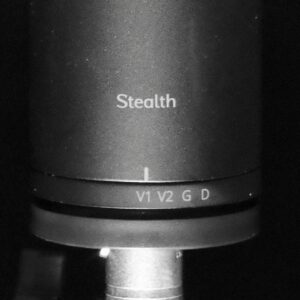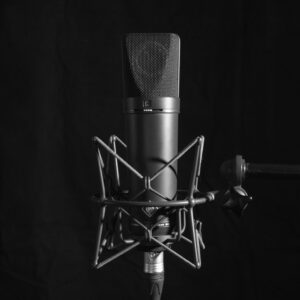 A writer of an article on the Guardian website claimed to have discovered a trend in documentary making whereby voice overs are apparently no longer used to provide narration. Recently I wrote about voiceover in corporate and explainer videos being replaced by animated titles and sub titles so I was interested to read what the writer -Barbara Speed – had discovered.
A writer of an article on the Guardian website claimed to have discovered a trend in documentary making whereby voice overs are apparently no longer used to provide narration. Recently I wrote about voiceover in corporate and explainer videos being replaced by animated titles and sub titles so I was interested to read what the writer -Barbara Speed – had discovered.
Speed uses the term “Voice of God” to describe documentary narration. It is used by an academic she quotes – Dr Catalin Bryella – who claims there has been a move away from “the traditional, authoritative ‘voice of god’ documentary narrator as audiences have turned away from their pretentious objectivity”.
Apparently the term “voice of god” for documentary narration is normal in academic circles but obviously in voice work it has a different specific usage (Usually event announcements).
Speed references documentaries nominated for Academy Awards comparing the list for 1990 with 2022 noting the presence of VO in the former while there are none in latter.
So she is talking about the relatively small number of documentaries that get mostly screened in film festivals each year. It seems she is not referring to the many documentaries made for, and broadcast on, TV and on-line platforms every year.
 Speed puts forward the notion that the demise of voice over is part of a process designed to make the documentary seem more “real” thus allowing the viewer to make up their own mind on the content without being told what to think by a judgemental voice over.
Speed puts forward the notion that the demise of voice over is part of a process designed to make the documentary seem more “real” thus allowing the viewer to make up their own mind on the content without being told what to think by a judgemental voice over.
This would seem to disregard the process that has curated the images and clips into a particular order to as a way of reaching a particular conclusion or to tell a particular story. What has been chosen and why? Perhaps more importantly what has been left out and why? The apparent freedom to make up your own mind free from instruction by the VO would seem to be illusory given that what you are watching is as much a directed, authored construct as the VO script if there were one.
Byella is also quoted as saying that this may be part of film making in a “post truth” world where information is “presented through emotions rather than factual accuracy”.
I found the article interesting but it seems to offer a wide ranging conclusion about the documentary genre that is not is really supported by the evidence presented. This is a point made by many comments below the line.
One of my favourite comments said
“The narrator isn’t “The Voice of God”, they are someone who is either well-informed about the topic or at least reading a script written and/or edited by someone who is well-informed about the topic.”
Many agreed although not all. As a voice artist I’m biased because I think this is the role of the narrator and also because I want voice over in documentary to continue!
 In the end it seems while there may be a trend to no voice over in certain sorts of documentary in others it is still widely used. If there was a concensus it seemed to be film makers today could choose whether to use VO or not depending on the subject matter and how they thought it could be most effectively presented.
In the end it seems while there may be a trend to no voice over in certain sorts of documentary in others it is still widely used. If there was a concensus it seemed to be film makers today could choose whether to use VO or not depending on the subject matter and how they thought it could be most effectively presented.
You can read the article here
Chris Radley – Voice Over